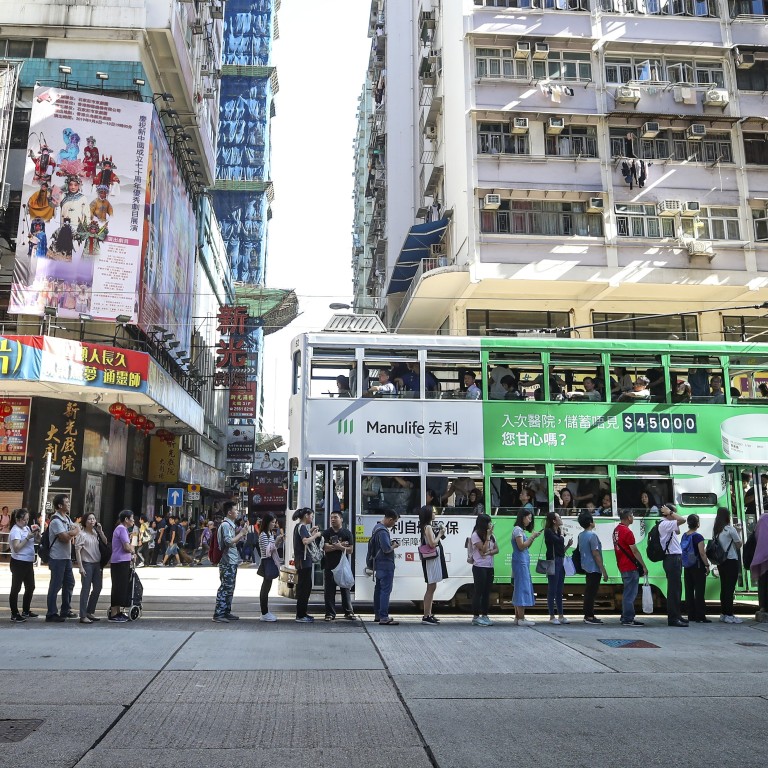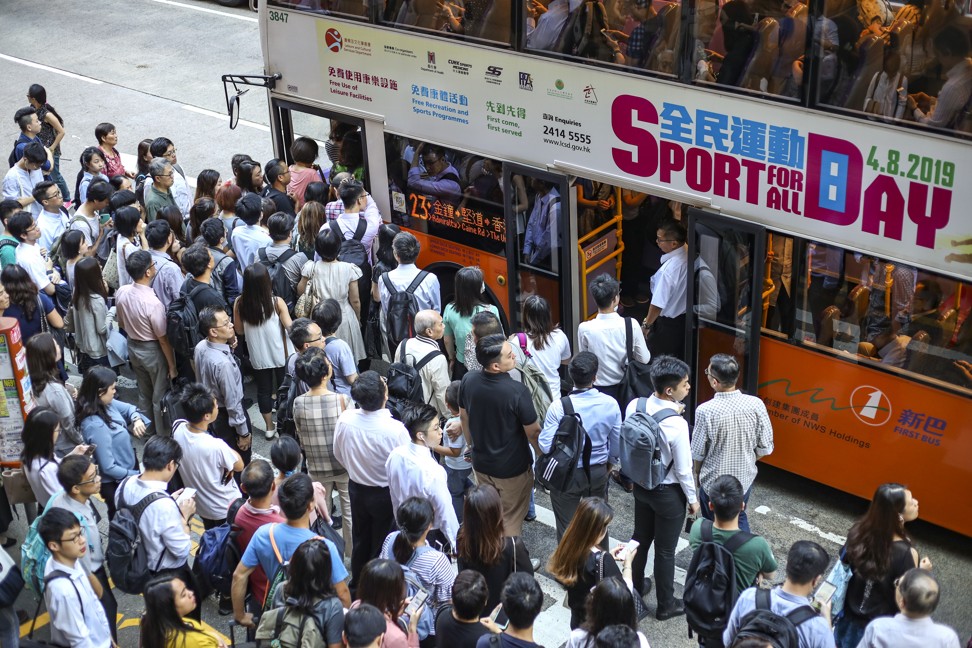
Hong Kong’s insurance sales to mainland Chinese policy holders plunge as daily images of mayhem and protest rallies deter arrivals
- Sales to mainland visitors dropped by between 10 per cent and 20 per cent in the last two months because Hong Kong law requires policy holders to present themselves in person to agents before contracts can be sealed
- At the peak, mainland Chinese bought 39 per cent of all new insurance policies sold in Hong Kong in 2016
Hong Kong’s insurance sales have taken a hit in the past two months, as almost daily street protests – particularly in districts frequented by mainland Chinese visitors such as Tsim Sha Tsui and Mong Kok – have kept them away.
Policy sales have fallen by between 10 per cent and 20 per cent since June, according to Altruist Financial Group, which provides financial planning services in Hong Kong.
“Insurance sales are down with locals buying less, and mainland visitors are also buying less,” said Altruist’s chief operating officer Glenn Turner. “People are using their mobile phones to track all the things going on in the protests and have not paid attention to insurance cover.”
The decline is bad news for Hong Kong’s 70 life insurers and their combined sales force of 90,000 agents, especially those niche companies whose entire business model is aimed at selling various packages of health, medical or retirement plans to Chinese customers.
At their peak in 2016, Chinese customers bought 39 per cent of all new insurance policies sold in Hong Kong, as they sought alternatives to hedge against a deteriorating yuan.
Hong Kong has faced an unprecedented level of public unrest ever since an estimated 1 million protesters marched on the streets on June 9 to oppose an unpopular extradition bill.
Tourist arrivals to Hong Kong plunged by 26 per cent at the end of July, from 1.5 per cent in the middle of the month when compared with the same period last year, Commerce Secretary Edward Yau Tang-wah said last week. The decrease widened to 31 per cent in early August, from last year, the data showed.
Declines in visitor arrivals crimp insurance sales because Hong Kong law requires mainlanders to present themselves in person to a sales agent, before any contract can be executed. The drop in business had been particularly badly felt by agents in Tsim Sha Tsui, Mong Kok, Causeway Bay and Admiralty, the districts where some of the most frequent and most visible protest clashes had taken place.

It was a slump that not even a deteriorating renminbi could offset. Mainland customers bought HK$72.68 billion of insurance policies in 2016 when the yuan weakened by 7 per cent against the US dollar, as they sought to park their capital in higher-yielding investments to offset the declining yuan, said Chan Kin-por, a Hong Kong lawmaker who represents the insurance sector.
Sales have dropped by 20 per cent since June, said an agent who would only be identified by his surname Wong.
“Neither mainlanders nor Hongkongers are in the mood to buy insurance products,” said Wong, who had been an agent for two years. “The atmosphere is gloomy, the traffic is bad, and we cannot visit clients around the city because the bus and the subway are blocked by protesters.”
“Many mainlanders feel unwelcomed and unwanted in Hong Kong, so they have stopped coming altogether. The hardest hit agents are those who rely on mainland customers. Some of them failed to sell anything over the past two months. It is zero commission for them. It is a hard time for these agents.”

